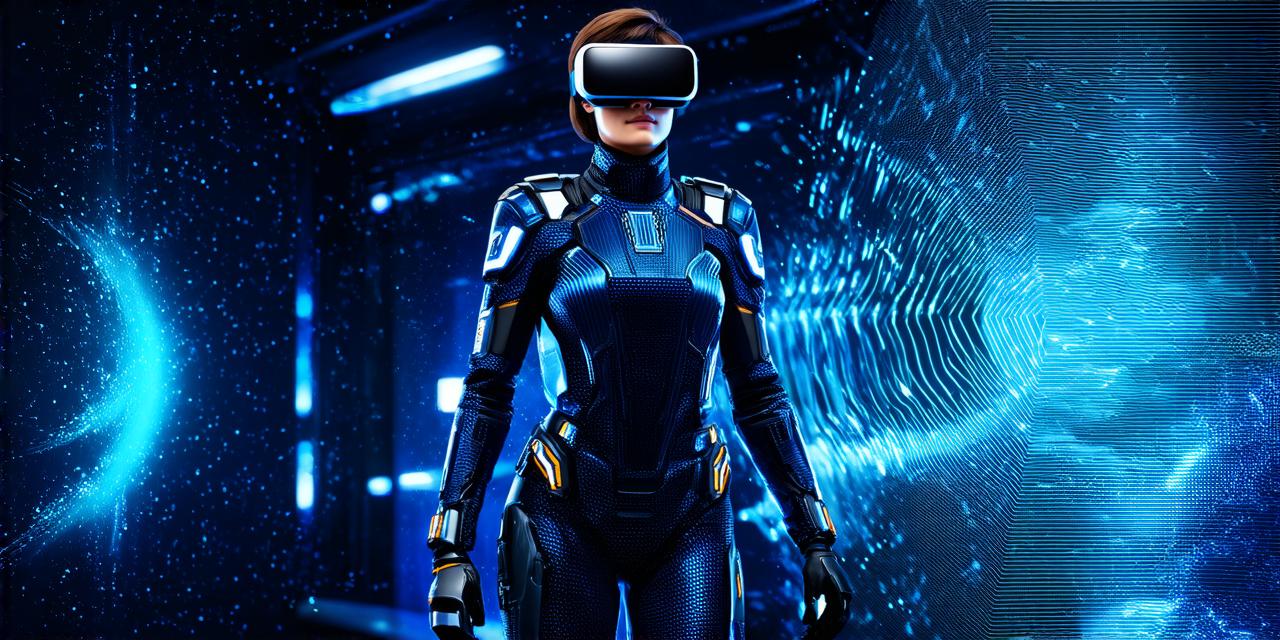As we continue to evolve and adapt to our rapidly changing world, the concept of the metaverse – a virtual reality that exists alongside the physical world – is gaining popularity. This digital realm offers endless possibilities for individuals looking to explore new frontiers and expand their horizons.
Education: A New Frontier
One of the most significant advantages of the metaverse is its ability to revolutionize the way we learn and educate ourselves. The immersive nature of virtual reality allows for a more engaging and interactive learning experience, making it an ideal tool for educators looking to enhance student engagement and retention.
In addition, virtual reality has the potential to democratize education by allowing individuals from all over the world to access top-quality educational resources without being limited by geography or financial constraints.
A case in point is the Metaverse University, an online platform that offers a range of courses and degrees in various fields such as design, programming, and gaming. By leveraging virtual reality technology, students can attend lectures and collaborate with peers in a virtual classroom, allowing them to learn from experts in their field without being restricted by geographical boundaries.
Virtual reality also has the potential to transform the way we teach science and math concepts. For example, researchers have created virtual simulations that allow students to explore complex scientific phenomena such as black holes, quantum mechanics, and climate change in a safe and controlled environment. This technology can help students gain a deeper understanding of these concepts by allowing them to interact with them in a more tangible way.

Entertainment: A New Form of Fun
Another exciting aspect of the metaverse is its potential to revolutionize the entertainment industry. Virtual reality offers a level of immersion and interactivity that traditional media can only dream of, making it an ideal tool for creating truly memorable experiences.
Whether you’re looking to ride a roller coaster through space or explore ancient ruins in Egypt, virtual reality can take you there.
One of the most popular applications of virtual reality is in gaming. Virtual reality games offer players a level of immersion that traditional games simply cannot match. By wearing a VR headset, players can step into their favorite games and become an active participant, allowing them to engage with the game world on a whole new level.
Virtual reality has also given rise to a new form of live entertainment, such as virtual concerts and sporting events. In 2017, the virtual reality platform Oculus partnered with the band Coldplay to create a live concert experience for fans who couldn’t attend the event in person. The concert was broadcast live in virtual reality, allowing fans to feel like they were actually there, surrounded by the music and energy of the crowd.
Business: A New Frontier for Commerce
Virtual reality also has the potential to transform the way we conduct business. By offering a more immersive and interactive experience, virtual reality can help businesses engage with customers in a more meaningful way, leading to increased sales and customer loyalty.
One example of this is the use of virtual reality in the real estate industry. Virtual tours allow potential buyers to explore properties in greater detail, helping them make more informed decisions about which property to purchase. Virtual tours have also been used by some real estate agents to create virtual staging for their listings, allowing buyers to visualize what a property could look like with different furnishings and decor.
Virtual reality can also be used to train employees in a variety of industries. For example, medical professionals can use virtual reality simulations to practice complex surgical procedures without putting patients at risk. Similarly, pilots can use virtual reality simulators to practice flying without the risk of crashing an actual plane.
